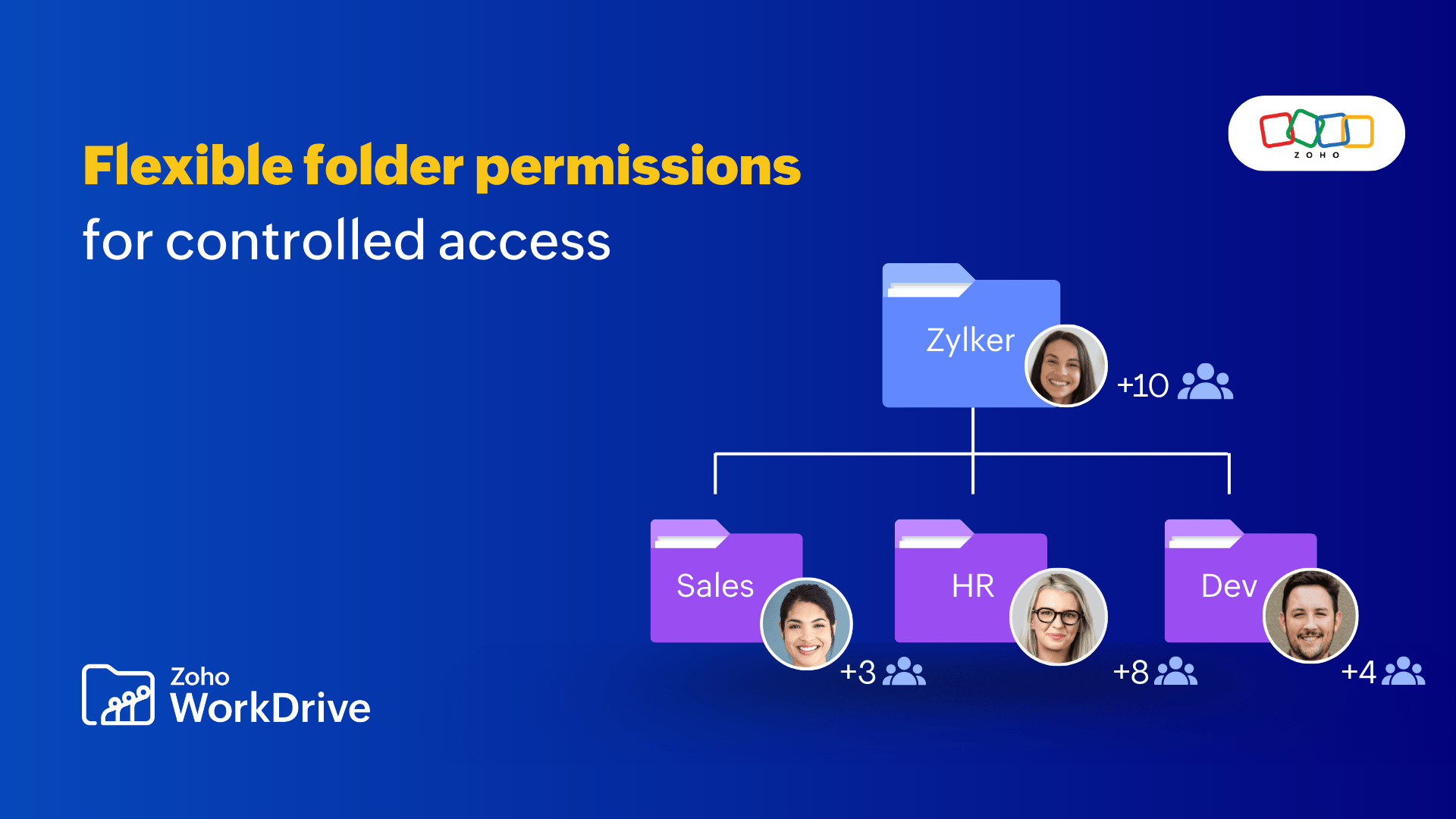Introducing custom folder permissions in WorkDrive: Flexibility and control at every level
- Last Updated : September 1, 2025
- 566 Views
- 3 Min Read

Shared folders make life easier for teams working across departments and borders. They bring content and people into one place to cut down on confusion and the usual back-and-forth emails about how to access files. Shared spaces work best when coupled with the right access controls.
These permissions decide who can see, change, or share the content in a folder. With the right permissions, important information stays safe, and everyone has access to what they need.
With Zoho WorkDrive, our focus has always been on helping teams work together more effectively. We want to remove the unnecessary friction that often comes with sharing content and collaborating across roles. That’s why we built WorkDrive around Team Folders with granular permissions and flexible sharing options. This helps teams collaborate easily while controlling what users see and which actions they can perform.
Building on this, we’ve introduced Custom Folder Permissions to give you more control inside Team Folders.
As business operations become more complex, companies often need to adapt by assigning different roles to take on new responsibilities. Folder customization lets you set precise access controls within specific subfolders. This means you don’t have to move folders around, create new ones, or change existing member access. Your Team Folder structure can stay as is, while subfolder permissions allow the right people to get access to the right content.
How teams can gain clarity and control with custom folder permissions:
Imagine a Team Folder created to manage a marketing campaign, with members from both the marketing and design teams working together. Everyone contributes to the same shared space, but not everyone needs access to every piece of content. Without proper access controls, teams risk accidental edits, information overload, or visibility of sensitive content.
With Custom Folder Permissions, you can avoid all that and keep collaboration simple. Here's what you can do:
Assign roles at the subfolder level to give individual users or groups the ability to organize, edit, view, or view and comment on files
Restrict members from accessing specific subfolders they don’t need
Update access anytime as roles or requirements change
Avoid content duplication or unnecessary restructuring just to manage permissions
Here's how different teams can manage folder permissions their way:
Education: A school can share a common Team Folder for a department, but limit access to exam papers or student records to faculty only.
IT teams: Set up project folders where certain config files or access credentials are only visible to specific engineers or admins.
Nonprofit organizations: Volunteers can view campaign resources, while donor lists and financial information are accessible only to appropriate members of the organization's professional staff.
Human resources: All employees can browse company policies and templates, but access to performance reviews or salary structure documents is limited to HR and appropriate team leaders or department heads.
Manufacturing: Production teams can view assembly instructions and inventory logs, while compliance reports and contracts are only accessible to the legal and management teams.
While most of the other business storage platforms still follow the waterfall permission model, where subfolders automatically inherit access permissions from their parent folder. WorkDrive gives more flexibility to manage access at any folder level, ensuring that only the right people see the right content.
Ready to take control of your folder permissions? Start collaborating with your teams on WorkDrive today.


